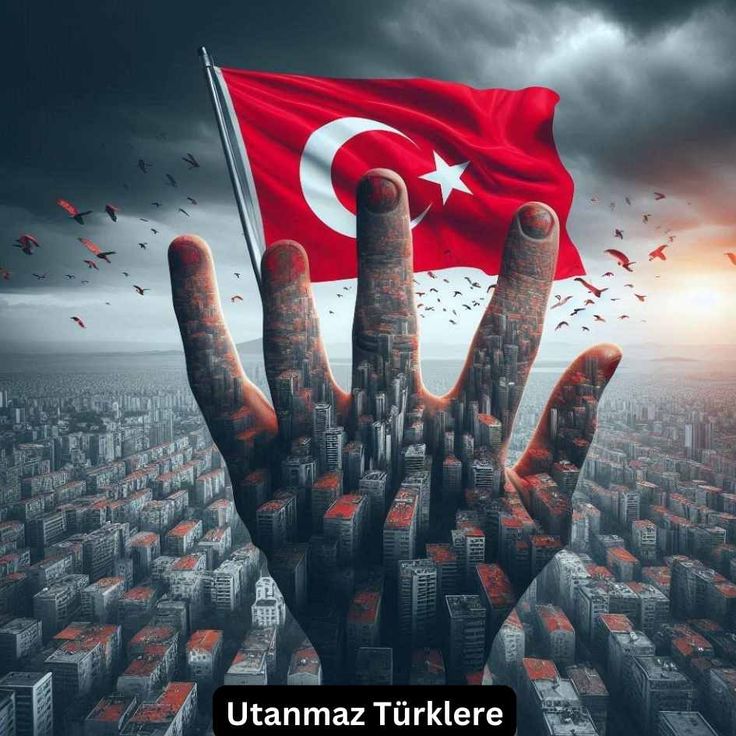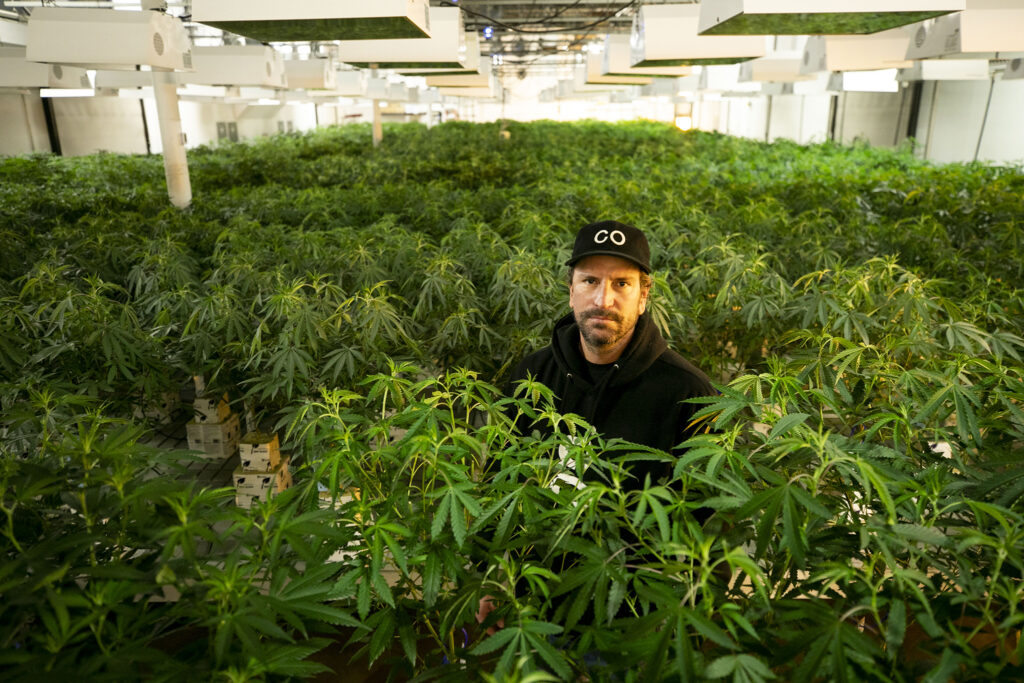News
Understanding the Concept of “Utanmaz Türklere”
Published
4 months agoon
By
Harry
Turkish culture is incredibly complex, shaped by centuries of rich history, geographic influences, and diverse interactions with neighboring civilizations. However, in modern times, phrases like “utanmaz Türklere” (meaning “shameless Turks”) have emerged as a form of cultural criticism. This term reflects the frustration of some within Turkish society about certain behaviors that are seen as inconsistent with traditional values, manners, or morals.
In recent years, “utanmaz Türklere” has become a topic of discussion both in Turkey and among the global Turkish diaspora. It is often used in moments of anger or social commentary, especially when addressing perceived issues of moral decay or societal shift. To truly grasp what “utanmaz Türklere” represents, we must dive deep into the Turkish identity, societal values, and how modernization has both enriched and complicated the nation’s culture.
The Role of Honor and Shame in Turkish Culture
For centuries, honor (or “onur”) and shame (“utanç”) have been central themes in Turkish social values. The concept of “honor” is often linked to personal dignity, reputation, and family pride. Conversely, shame has been used to enforce societal norms, discouraging behaviors that would reflect poorly on the individual, their family, or the broader community.
The idea of “shame” as a social tool has been ingrained deeply within Turkey’s cultural and religious framework. For example, inappropriate public behavior or actions that go against societal expectations have traditionally been met with disdain or punishment. Family structures, particularly in rural or conservative areas, emphasize this dynamic, making “shame” a powerful mechanism of control and cohesion.
However, as modernization has swept across Turkey—particularly in urban centers like Istanbul, Ankara, and Izmir—traditional values have been challenged. This is where the term “utanmaz Türklere” comes into play. It reflects a growing sentiment among those who feel that some members of society have lost their sense of shame, engaging in what they consider to be disgraceful or dishonorable actions.
Cultural Shifts and the Emergence of “Utanmaz Türklere”
Turkey’s transformation from a largely agrarian society to a modern, secular state has been rapid, especially following the founding of the Republic in 1923 by Mustafa Kemal Atatürk. Westernization efforts, combined with globalization, have introduced new social norms, lifestyles, and behaviors. While many have embraced these changes, others view them as a departure from traditional Turkish values.
“Utanmaz Türklere” is a phrase that captures this cultural tension. For the more conservative or traditional segments of the population, certain behaviors—such as public displays of affection, less modest dress, and more liberal social attitudes—are seen as signs that some Turks have become “shameless.” These individuals are perceived as having abandoned the cultural norms that once defined Turkish identity, leading to a broader discourse about morality, pride, and national character.
The Intersection of Modernity and Conservatism in Turkey
At the heart of the “utanmaz Türklere” sentiment is the ongoing clash between modernity and conservatism. Turkey, geographically straddling both Europe and Asia, has always been at a crossroads of cultures. This unique position has resulted in a society where East meets West, and where secularism meets tradition.
In large cities, where exposure to Western lifestyles and values is most apparent, the criticism of “shamelessness” often targets the youth, celebrities, or individuals who openly challenge traditional gender roles or religious practices. However, this criticism is not just reserved for the younger generations. The phrase can also be directed toward political figures, media personalities, and others seen as embodying or promoting behaviors that are “against” the Turkish moral fabric.
On the other hand, many Turks, particularly those from younger or more progressive backgrounds, argue that what some call “shamelessness” is simply the natural evolution of a modern society. For them, embracing Western ideals such as freedom of expression, individuality, and gender equality is a positive step toward a more open and inclusive nation.
Criticism and Political Undertones
The phrase “utanmaz Türklere” also carries strong political undertones. Turkey has experienced significant political polarization, particularly between secularists and Islamists, liberals and conservatives, as well as between various ethnic groups and political movements. Each of these factions has its own vision of what Turkey should be, and accusations of “shamelessness” are often used to discredit political opponents or cultural movements.
For example, liberal groups might be accused of being “shameless” for advocating for LGBTQ+ rights, secularism, or feminist causes. Meanwhile, more conservative figures, including those in political power, may face accusations of shamelessness for corruption, authoritarianism, or for aligning with policies that are viewed as undemocratic.
In this way, the term has become a tool not just for personal or social criticism, but also for larger political battles about the future direction of Turkey as a nation.
Social Media Amplifying the Conversation
In recent years, social media platforms have played a huge role in amplifying the conversation around “utanmaz Türklere.” These digital spaces have given a voice to individuals who feel that certain aspects of Turkish society are eroding traditional values. On platforms like Twitter, Instagram, and Facebook, viral posts often highlight behaviors considered scandalous or inappropriate, sparking heated debates about morality, identity, and shame.
However, this also works both ways. Progressive and liberal voices have used social media to push back against accusations of “shamelessness,” defending their right to live as they choose and questioning the relevance of traditional values in a modern, democratic society. In this digital age, the discourse around “utanmaz Türklere” reflects the broader, ongoing debate about Turkish identity.
The Future of Turkish Identity and Values
So, what does the future hold for Turkey in terms of its values and identity? The conversation around “utanmaz Türklere” suggests that the nation is at a cultural crossroads. On one hand, there is a deep respect for tradition, history, and the values that have shaped Turkey for centuries. On the other, there is a growing acceptance of new social norms, driven by globalization, urbanization, and a more connected world.
While the term “utanmaz Türklere” may seem negative, it highlights an important reality: Turkey is a dynamic, evolving country. Its people are diverse, with different perspectives on what it means to be Turkish. As these conversations continue to unfold, the key will be finding a balance between maintaining cultural integrity while embracing the inevitable changes of modern life.
FAQs
What does “utanmaz Türklere” mean?
The term “utanmaz Türklere” translates to “shameless Turks” and is used as a form of cultural criticism to describe behaviors that are perceived as dishonorable or inconsistent with traditional Turkish values.
Is “utanmaz Türklere” commonly used in Turkey?
Yes, especially in social commentary and discussions about morality, cultural identity, or societal changes. It reflects the tension between modern and traditional values.
How does modernization contribute to the “utanmaz Türklere” sentiment?
Modernization has brought new social norms, behaviors, and values that some feel are at odds with Turkey’s traditional moral framework, leading to accusations of “shamelessness” in certain sectors of society.
Is this term only used against young people?
No, it can be directed toward anyone—young or old—who is perceived as engaging in behaviors that go against societal expectations or values.
What role does social media play in this conversation?
Social media amplifies discussions about “utanmaz Türklere” by giving a platform to both critics and defenders of changing societal behaviors, sparking national and even international debates.
How does “utanmaz Türklere” relate to Turkey’s political landscape?
The phrase has political undertones and is often used to criticize opponents or factions that are seen as promoting behaviors or policies that go against traditional values, contributing to the country’s broader cultural and political divide.
Conclusion
The term “utanmaz Türklere” is a reflection of the deep and ongoing conversation about Turkish identity. As the country continues to modernize and evolve, these debates about tradition, shame, and societal norms will likely persist. Ultimately, the future of Turkey lies in the balance between honoring its rich cultural history and adapting to the demands of an increasingly globalized world.
You may like
News
Surviving the Cannabis Industry: Strategies for Success
Published
3 months agoon
November 28, 2024By
Harry
The cannabis industry has experienced exponential growth over the past decade, transforming from an underground market to a legitimate and highly competitive sector. As legalization continues to expand globally, entrepreneurs are diving into this burgeoning field, eager to carve out their share of the market. However, surviving—let alone thriving—in the cannabis industry requires navigating unique challenges such as regulatory complexities, intense competition, and evolving consumer expectations. This article explores strategies for building a resilient cannabis business, supported by insights from seasoned industry professionals.

Understanding the Challenges
Regulatory Complexity
One of the most significant hurdles in the cannabis industry is its regulatory environment. Cannabis laws vary widely across jurisdictions, and staying compliant requires constant vigilance. Businesses must contend with licensing, zoning restrictions, labeling requirements, and strict inventory tracking.
Market Saturation
As more players enter the industry, competition is intensifying. Markets like California and Colorado, once dominated by a few operators, now feature hundreds of dispensaries and product manufacturers. Standing out in such a crowded field is a formidable task.
Stigma and Public Perception
Despite growing acceptance, cannabis still carries a social stigma in many communities. Entrepreneurs often face resistance from local governments, community members, and even financial institutions, complicating operations.
Financial Hurdles
Access to traditional banking and financing remains limited due to cannabis’s federal illegality in the United States and similar restrictions in other countries. Many operators rely on private funding, which can be costly and inconsistent.
Strategies for Success
1. Master Compliance
Compliance is non-negotiable in the cannabis industry. Non-compliance can result in hefty fines, business closures, or even jail time. Here are key steps to ensure compliance:
- Hire Compliance Experts: Employ or consult with legal professionals specializing in cannabis law to navigate complex regulations.
- Stay Informed: Regularly review updates to local, state, and federal laws.
- Invest in Technology: Use compliance software for seed-to-sale tracking, inventory management, and reporting.
2. Differentiate Your Brand
To stand out in a crowded market, branding is crucial. Successful cannabis businesses create strong, unique identities that resonate with their target audience. Consider the following:
- Define Your Niche: Focus on a specific demographic, product type, or lifestyle to create a compelling brand story.
- Quality First: Invest in product quality to build trust and loyalty among consumers.
- Engage Customers: Use social media, events, and educational content to connect with your audience.
3. Build Strategic Partnerships
Collaboration can amplify your reach and capabilities. Consider partnerships with:
- Suppliers: Secure consistent, high-quality raw materials to maintain product standards.
- Retailers: Expand your distribution network by building relationships with dispensaries.
- Influencers: Leverage cannabis advocates and influencers to boost brand awareness.
4. Prioritize Innovation
The cannabis market thrives on innovation. Consumers are constantly seeking new and exciting products, so businesses must stay ahead of trends.
- Invest in R&D: Develop novel products such as edibles, beverages, and topicals.
- Monitor Consumer Trends: Stay attuned to shifts in preferences, such as demand for organic or CBD-focused products.
- Adapt Quickly: Respond to market changes with agility to maintain relevance.
5. Focus on Customer Experience
Exceptional customer service can differentiate your business and build loyalty.
- Train Staff: Ensure employees are knowledgeable about cannabis products and can provide informed recommendations.
- Personalize Interactions: Use customer data to offer tailored experiences and promotions.
- Solicit Feedback: Regularly gather and act on customer feedback to improve your offerings.
6. Manage Finances Prudently
Financial management is critical to long-term survival.
- Secure Reliable Funding: Seek investment from private equity, venture capital, or cannabis-focused lenders.
- Control Costs: Regularly audit expenses to identify areas for savings.
- Plan for Taxes: Prepare for high tax burdens, particularly in jurisdictions with excise taxes on cannabis.
Adapting to Evolving Industry Trends
The cannabis industry is dynamic, and staying informed about emerging trends is vital. Key trends to watch include:
- Global Expansion: Markets are opening in Europe, Asia, and South America, creating opportunities for international growth.
- Health and Wellness Focus: The rise of wellness-focused cannabis products, such as CBD, is attracting health-conscious consumers.
- Technology Integration: Innovations like AI-powered cultivation and blockchain for transparency are reshaping operations.
- Sustainability: Environmentally friendly practices are becoming increasingly important to consumers and regulators alike.
Building Resilience
Success in the cannabis industry is not guaranteed, but resilience can be cultivated through:
- Continuous Learning: Stay informed about industry developments, regulations, and market trends.
- Flexibility: Be prepared to pivot strategies in response to challenges or opportunities.
- Community Engagement: Build goodwill by contributing positively to local communities through education and outreach.
Conclusion
Surviving and thriving in the cannabis industry requires a blend of innovation, compliance, and adaptability. By understanding the unique challenges and leveraging strategies like brand differentiation, financial prudence, and customer engagement, businesses can position themselves for long-term success. As the industry evolves, those who remain proactive and resilient will be best equipped to seize emerging opportunities and overcome obstacles.
Frequently Asked Questions (FAQs)
1. What are the biggest challenges for cannabis businesses?
The main challenges include regulatory complexity, market saturation, financial hurdles, and overcoming social stigma.
2. How can I differentiate my cannabis business?
Focus on building a unique brand identity, delivering high-quality products, and engaging with your target audience through innovative marketing strategies.
3. Is it hard to get funding for a cannabis business?
Yes, traditional banking and financing options are limited due to regulatory restrictions. Many businesses rely on private funding or specialized cannabis lenders.
4. What trends should I watch in the cannabis industry?
Key trends include global expansion, the rise of wellness-focused products, technological integration, and sustainability practices.
5. How can I ensure compliance with cannabis regulations?
Hire legal experts, stay informed about local and federal laws, and invest in compliance software to manage operations effectively.
News
The Disturbing Case of Robert Rhoades: The Truck Stop Killer
Published
3 months agoon
November 28, 2024By
Harry
Robert Ben Rhoades, infamously known as “The Truck Stop Killer,” is one of America’s most chilling serial killers. Operating during the late 1970s and early 1990s, Rhoades used his profession as a long-haul truck driver to target victims, earning his nickname due to his predatory behavior at truck stops and along highways. His crimes were heinous, his methods calculated, and his legacy remains a grim reminder of the dangers faced by vulnerable individuals in transient spaces.
This article delves into the life of Robert Rhoades, his heinous acts, his eventual capture, and the impact his crimes had on society.
Early Life and Background
Robert Ben Rhoades was born on November 22, 1945, in Council Bluffs, Iowa. While his early life was seemingly ordinary, deeper examination reveals patterns of instability and troubling behavior. His father, who had served in the military, struggled with mental health issues and died by suicide when Rhoades was young. This traumatic event may have contributed to Rhoades’ later violent tendencies.
Rhoades was described as intelligent but manipulative. Despite his outward normalcy, he exhibited troubling behavior even before his killing spree. He served briefly in the U.S. Marine Corps but was dishonorably discharged due to misconduct. Following this, he held various jobs, eventually settling into life as a truck driver—a career that provided the mobility and anonymity he would later exploit.
The Modus Operandi of a Predator
Rhoades’ profession as a truck driver gave him access to isolated locations, transient victims, and long stretches of time away from scrutiny. His mobile lifestyle allowed him to abduct, torture, and murder with alarming efficiency.
Hunting Grounds
Rhoades targeted truck stops, highways, and rest areas—places where individuals, often women, were vulnerable and alone. Many of his victims were hitchhikers, sex workers, or young women traveling long distances.
The Torture Chamber
Rhoades customized the cab of his truck into a mobile torture chamber. Equipped with restraints, chains, and other implements, this space became a prison for his victims. He was known for subjecting his captives to prolonged periods of physical and psychological torture, taking sadistic pleasure in their suffering.
Victim Selection
Rhoades preyed on those who were least likely to be missed immediately. The transient nature of his victims made it difficult for authorities to trace their disappearances, giving him an edge over law enforcement.
Notable Crimes
The Case of Regina Kay Walters
One of the most infamous cases linked to Rhoades is that of Regina Kay Walters, a 14-year-old girl from Texas. Walters and her boyfriend, Ricky Lee Jones, were hitchhiking when they encountered Rhoades. Jones was murdered, while Walters was held captive for an extended period.
Rhoades subjected Walters to unspeakable horrors, even cutting her hair and forcing her to wear specific clothing. He took chilling photographs of her during her captivity, including one where she appears terrified, moments before her death. These photos later became key evidence in his trial.
Other Victims
Rhoades is suspected of murdering numerous other individuals, though the exact number remains unknown. Authorities believe his killing spree could span decades and involve dozens of victims. Many cases remain unsolved, with victims unidentified.
Capture and Arrest
Rhoades’ reign of terror came to an end in April 1990, when an Arizona state trooper discovered a woman, handcuffed and terrified, inside his truck. The victim had been tortured but was rescued before Rhoades could kill her. The discovery set off a chain of events that led to his arrest.
During the investigation, authorities uncovered a trove of disturbing evidence in Rhoades’ truck and home, including photographs, torture devices, and personal belongings of his victims. This evidence provided a glimpse into the extent of his crimes and solidified his status as a methodical and sadistic killer.
Trial and Conviction
Rhoades was charged with multiple murders and convicted in several cases, including the murder of Regina Kay Walters. In 1994, he was sentenced to life imprisonment without the possibility of parole.
Despite his convictions, Rhoades has not confessed to all his crimes. Investigators continue to link him to cold cases across the United States, suspecting he may have killed as many as 50 people.
The Impact of Rhoades’ Crimes
Rhoades’ crimes highlighted the vulnerabilities of transient populations, particularly young women traveling alone. His case underscored the challenges faced by law enforcement in tracking mobile predators who exploit interstate systems.
Law Enforcement Awareness
Rhoades’ capture led to increased awareness about the dangers faced by hitchhikers and sex workers, prompting changes in how law enforcement addresses crimes along highways and truck stops.
Public Awareness
The case served as a grim warning about the risks of accepting rides from strangers and the need for heightened vigilance in isolated areas.
The Legacy of Robert Rhoades
Rhoades remains incarcerated, but his case continues to haunt investigators, victims’ families, and the public. His ability to evade capture for so long, coupled with the brutality of his crimes, makes him one of the most notorious serial killers in American history.
While justice has been served for some of his victims, many families still await closure. The legacy of his crimes is a sobering reminder of the darkness that can hide behind a facade of normalcy.
Conclusion
The story of Robert Ben Rhoades is a chilling account of how a predator exploited his profession and circumstances to commit unspeakable acts. His case exemplifies the need for vigilance, both from individuals and law enforcement, in combating crimes against vulnerable populations.
While Rhoades’ actions cast a dark shadow, his capture and conviction provide some measure of justice for his victims and their families. His story serves as both a cautionary tale and a testament to the resilience of those who continue to seek the truth about his crimes.
FAQs
1. Who is Robert Ben Rhoades?
Robert Ben Rhoades, also known as “The Truck Stop Killer,” is an American serial killer who used his profession as a truck driver to abduct, torture, and murder numerous victims.
2. How was Rhoades caught?
Rhoades was arrested in 1990 when a state trooper discovered a woman, handcuffed and terrified, in his truck. The subsequent investigation uncovered extensive evidence linking him to multiple murders.
3. How many victims did Rhoades have?
While Rhoades has been convicted of several murders, investigators believe he may have killed as many as 50 people, though the exact number remains uncertain.
4. What was Rhoades’ modus operandi?
Rhoades lured victims, often hitchhikers or sex workers, into his truck. He held them captive in his truck’s customized torture chamber, where he subjected them to physical and psychological abuse before killing them.
5. What happened to Regina Kay Walters?
Regina Kay Walters, a 14-year-old victim, was abducted, tortured, and murdered by Rhoades. Photographs he took of her during captivity became key evidence in his trial.
6. Is Robert Rhoades still alive?
Yes, Robert Ben Rhoades is serving a life sentence without the possibility of parole in a Texas prison.
7. Why is he called “The Truck Stop Killer”?
Rhoades earned this nickname because he targeted victims at truck stops and along highways, leveraging his mobility as a truck driver.
8. What can be learned from the Rhoades case?
The case emphasizes the need for public awareness about safety in transient spaces, the importance of robust law enforcement collaboration, and the dangers faced by vulnerable populations.
9. Are there still unsolved cases linked to Rhoades?
Yes, investigators continue to explore unsolved cases that may be connected to Rhoades, as he is suspected of numerous additional murders.
10. How has Rhoades’ case influenced public safety?
Rhoades’ crimes led to increased awareness of the risks faced by hitchhikers and sex workers, encouraging greater caution and improved safety measures at truck stops and along highways.
News
The Ping Pong Ball: A Lightweight Champion of Table Tennis
Published
3 months agoon
November 28, 2024By
Harry
The ping pong ball is more than just a small, lightweight sphere; it is the heart of table tennis, a sport enjoyed by millions around the world. From casual recreational play to high-stakes international tournaments, the ping pong ball has become a symbol of agility, precision, and competition. Its evolution, design, and significance offer fascinating insights into both the sport and the manufacturing ingenuity behind this humble yet essential object.
The Evolution of the Ping Pong Ball
The history of the ping pong ball is intrinsically tied to the development of table tennis. Originating in the late 19th century as a parlor game in England, table tennis was first played with makeshift equipment, including books as paddles and cork balls. These early versions of the game lacked the uniformity and sophistication of today’s sport.
The Celluloid Revolution
In the early 20th century, celluloid balls were introduced, revolutionizing the game. James Gibb, a British table tennis enthusiast, discovered lightweight celluloid balls during a trip to the United States and found them ideal for table tennis. These balls were uniform, durable, and offered a consistent bounce, making them perfect for competitive play. The introduction of celluloid balls set a standard that lasted for over a century.
The Transition to Plastic
By the early 2000s, concerns over the flammability and environmental impact of celluloid prompted a shift to plastic balls. In 2014, the International Table Tennis Federation (ITTF) officially adopted plastic balls for competitive play. These modern balls are made of acrylonitrile butadiene styrene (ABS), a type of thermoplastic polymer. While slightly different in bounce and feel, they maintain the essential characteristics required for high-level play.
Design and Specifications
The ping pong ball’s seemingly simple design belies the precise engineering that goes into its creation. It must meet specific standards to ensure fair and consistent play.
Size and Weight
- Diameter: The standard diameter is 40 millimeters, increased from 38 millimeters in 2000 to slow the game slightly and enhance spectator enjoyment.
- Weight: A ping pong ball weighs 2.7 grams, ensuring it is lightweight enough for rapid movements but heavy enough for controlled play.
Material
Modern ping pong balls are made from ABS plastic. This material is durable, offers consistent performance, and is less hazardous to produce and store than celluloid.
Color
The balls are traditionally white or orange, chosen for their visibility against various playing surfaces. The choice of color often depends on the playing environment, with white balls preferred for dark backgrounds and orange balls for lighter settings.
Star Ratings
Ping pong balls are rated from one to three stars, with three-star balls being the highest quality and used in professional tournaments. These balls are rigorously tested for uniformity in size, weight, bounce, and roundness.
Manufacturing Process
Producing a ping pong ball involves several meticulous steps to ensure uniformity and performance.
- Material Preparation: Sheets of ABS plastic are heated and molded into hemispherical shapes.
- Joining Halves: Two hemispheres are fused together using heat and glue, creating a seamless sphere.
- Polishing: The ball is smoothed and polished to ensure a uniform surface.
- Testing: Each ball undergoes strict quality control tests for size, weight, roundness, and bounce.
- Stamping: The manufacturer’s logo and star rating are printed on the ball.
The Role of Ping Pong Balls in Gameplay
The ping pong ball plays a crucial role in the dynamics of table tennis. Its characteristics directly influence gameplay, requiring players to adapt their techniques and strategies.
Spin
One of the most distinctive features of table tennis is the ability to impart spin on the ball. A well-designed ball allows players to generate topspin, backspin, or sidespin, adding complexity and excitement to matches.
Speed
The ball’s lightweight design enables rapid acceleration, making table tennis one of the fastest sports in the world. Players must react quickly to the ball’s movements, showcasing their agility and reflexes.
Bounce
The uniform bounce of a ping pong ball is critical for fair play. A ball that bounces consistently allows players to predict its trajectory and execute precise shots.
The Ping Pong Ball in Culture and Beyond
While primarily associated with table tennis, ping pong balls have found uses beyond the sport.
Science and Education
Ping pong balls are frequently used in experiments and educational demonstrations. Their lightweight and aerodynamic properties make them ideal for exploring principles of physics, such as buoyancy and motion.
Entertainment
Ping pong balls are staples in games like beer pong and carnival challenges. They have also appeared in viral videos showcasing incredible trick shots, highlighting their versatility and appeal.
Art and Creativity
Artists and DIY enthusiasts often incorporate ping pong balls into their creations. Their smooth, spherical shape lends itself to a variety of projects, from decorative crafts to innovative designs.
Environmental Considerations
The transition from celluloid to plastic balls was driven in part by environmental concerns. While ABS plastic is less flammable and hazardous than celluloid, it is still a synthetic material that poses challenges for recycling and disposal. Manufacturers are exploring ways to produce ping pong balls more sustainably, including the use of biodegradable materials.
Conclusion
The ping pong ball may be small, but its impact is immense. From its humble beginnings as a cork ball in Victorian England to its modern incarnation as a precisely engineered sphere, it has played a central role in the development of table tennis. Its design, manufacturing, and cultural significance reflect a blend of tradition and innovation.
Whether bouncing on a table in an intense championship match, serving as a tool for scientific exploration, or simply bringing joy to casual players, the ping pong ball continues to inspire and connect people worldwide. Its story is a testament to the enduring appeal of this lightweight champion of table tennis.
FAQs
1. What is a ping pong ball made of?
Modern ping pong balls are made of ABS plastic, a durable and lightweight material that replaced celluloid due to safety and environmental concerns.
2. Why did the size of ping pong balls change?
The size increased from 38mm to 40mm in 2000 to slow down gameplay, making it more viewer-friendly and enhancing the sport’s appeal for spectators.
3. What do the stars on ping pong balls mean?
The stars indicate quality. Three-star balls are the highest quality and are used in professional tournaments, while one- and two-star balls are suitable for practice or recreational play.
4. How long does a ping pong ball last?
The lifespan of a ping pong ball depends on usage. High-quality balls used in intense gameplay may last for a few matches, while recreational balls can last longer with proper care.
5. Can ping pong balls be recycled?
Recycling ping pong balls is challenging due to the specific type of plastic used. Efforts are underway to develop more sustainable materials for their production.
6. Why are ping pong balls white or orange?
White and orange are chosen for visibility. White balls are easier to see against dark backgrounds, while orange balls are preferred in lighter environments.
7. Are ping pong balls flammable?
While modern ABS plastic balls are less flammable than celluloid, they can still ignite under high heat. Proper storage away from extreme temperatures is advised.
8. How do I choose the right ping pong ball?
For competitive play, opt for three-star balls. For casual or practice sessions, one- or two-star balls are sufficient.
9. What happens if a ping pong ball cracks during play?
If a ball cracks or becomes deformed during a match, it is replaced with a new one to ensure consistent gameplay.
10. Can ping pong balls be used for other purposes?
Yes, ping pong balls are versatile and can be used in experiments, art projects, and games like beer pong, showcasing their adaptability beyond table tennis.
Trending
-

 Fashion3 months ago
Fashion3 months agoUnderstanding the Culture and Significance of Bare Boobs: A Comprehensive Exploration
-

 Life Style4 months ago
Life Style4 months agoPonderShort.com: A New Hub for Short-Form Content Enthusiasts
-

 News4 months ago
News4 months agoTechdae.frl: Ultimate Guide and Key Insights
-

 Life Style4 months ago
Life Style4 months agoWaethicc: A Global Perspective
-

 Life Style4 months ago
Life Style4 months agoZoom Realty: Revolutionizing Real Estate in the Digital Age
-

 Life Style4 months ago
Life Style4 months agoThe Grand Duke Is Mine: Spoilers and Plot Breakdown
-

 News4 months ago
News4 months agoAviva Taeidkashani: A Rising Star in the World of Art and Design
-

 Entertainment4 months ago
Entertainment4 months agoLucia Moniz: A Journey from Music to Acting and Beyond
